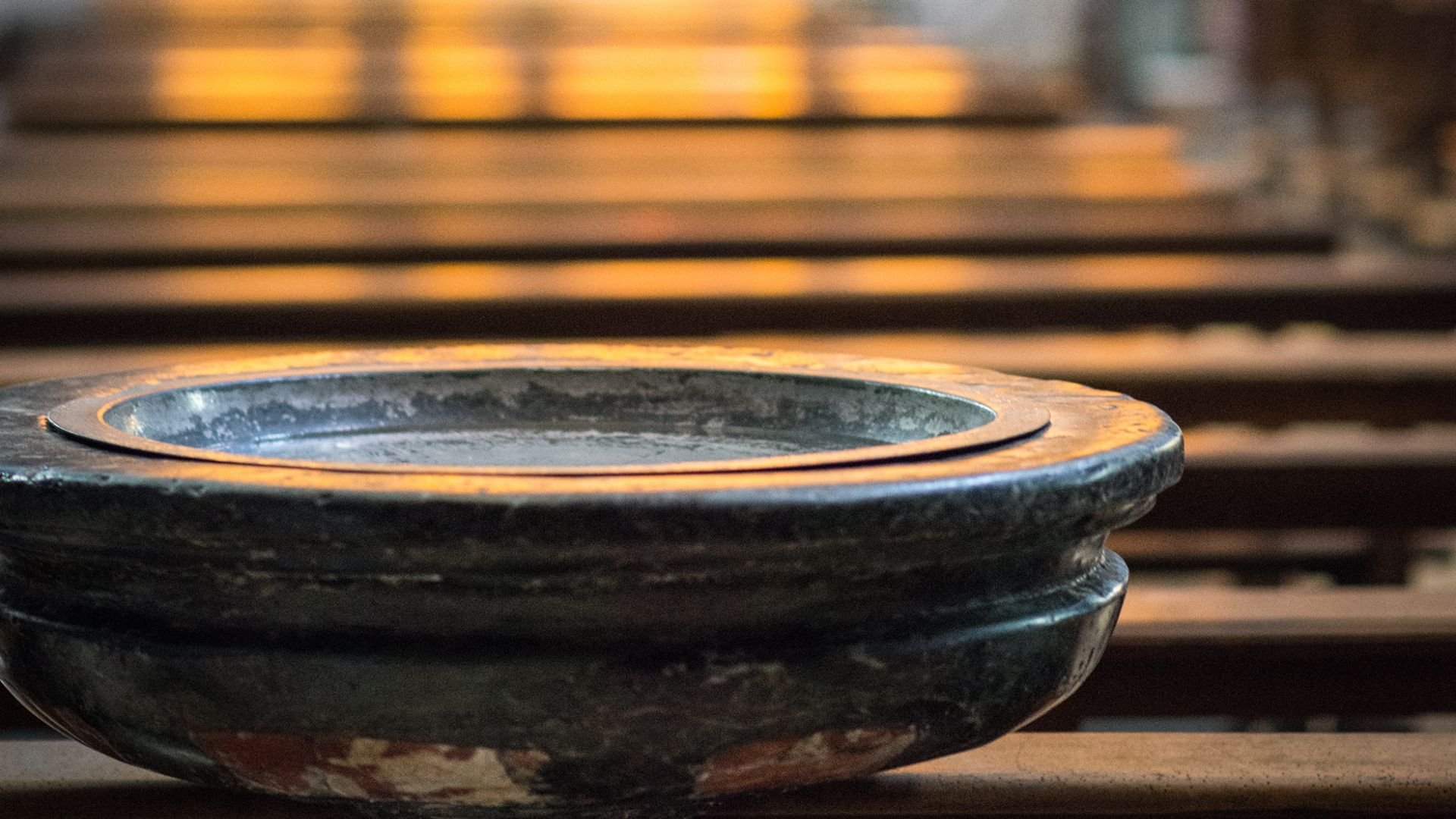
Through baptism we are reminder, celebrate, and respond to God’s promise of love and care for us.
Celebrating the Sacrament of Baptism at St. Andrew’s
Through the sacrament of baptism, we acknowledge God's grace and love. Whether you are an adult seeking baptism or a parent looking to have your child baptized, we invite you to explore this important step in your spiritual journey and discover the beauty and meaning of baptism
-
God has long ago pledged love to all creation (Genesis 1:31; Genesis 9:9-17). Having your baby baptized does not cause God to pledge love; God already loves your child.
When we baptize, we are reminded and celebrate and respond to God’s pledge (covenant) of love and care for us. Through the sacramental act of baptism and the vows that you are parents, understandable and real to us. In baptism, we are engaged, by our vows, to be instruments of God. The act of baptism provides tangible assurance of God’s love toward us. Baptism signifies union with Christ and the church.
-
The word “sacrament” comes from the Latin “sacramentum”, meaning “vow”. We reserve the word sacrament for two special ways (baptism and the Lord’s Supper) in which we experience God’s grace, pledge (vow), and love to us.
A sacrament involves not only words but engages our senses, too; it is a rich way to know God’s grace. A sacrament involves a sign (baptismal water) and an “action” - presenting, receiving, naming, baptizing and making of promises. The sign points to an inward and invisible reality: God’s pledge and nurture of us and God’s continuing presence in the person of the Holy Spirit. The “action” - presenting, receiving, naming, baptizing and making of promises. The sign points to an inward and invisible reality: God’s pledge and nurture of us and God’s continuing presence in the person of the Holy Spirit. The “action” engages our senses, establishes new relationships and calls us into a new way of life, affecting our behaviour.
Sacraments are not magic! Participating in a sacrament does not cause God to begin loving us. Rather, a sacrament is an opportunity to us to acknowledge the reality of God’s presence and publicly commit ourselves to God and God’s ways. In no way is baptism a condition of salvation.
-
The Reformed Presbyterian tradition recognizes two sacraments: baptism and The Lord’s Supper. Our tradition asserts that only actions which Jesus specifically commanded us to do are to be known as sacraments. God's example, “Go therefore and make disciples of all nations, baptizing them in the name of the Father and of the Son and of the Holy Spirit, and teaching them to obey everything that I have commanded you.” (Matthew 28:19-20 NRSV) In passages such as 1 Corinthians 11:24-25, we are provided instruction concerning The Lord’s Supper.
-
Water is a rich and basic symbol that carries with it a number of reminders - life, cleansing, and refreshment.
Its most basic reminder is of live and death. It indicates that we want the child to reject a way of life that separates them from God. one that is spiteful and self-centred, and instead live a life that is loving, giving, compassionate, and concerned for justice - the kind of life best exemplified by Jesus.
Water is a reminder of cleansing of washing. Baptism signifies your start of new life in Christ and promises of the washing away of sin, through forgiveness, throughout the rest of your life.
Water is a reminder of refreshment. We actively seek our refreshment in the struggle of life. In baptism, we are reminded that wherever we find refreshment - in the physical environment, in ideas, in relationships, in public and private experiences - this refreshment is a gift of God and evidence of God’s presence. God’s refreshment of us is everywhere and in every place.
Water is places on top of the head to signify that what is being done involves the whole person - mental, physical, emotional, and relational. The water is often placed on the child’s head in the shape of the cross. The isreminds us of the extent to which God’s care extends to each individual. We are emulate this kind of loving. The symbol of the cross also reminds us that dying to our old self is costly, but like Jesus, we too are raised to new life.
